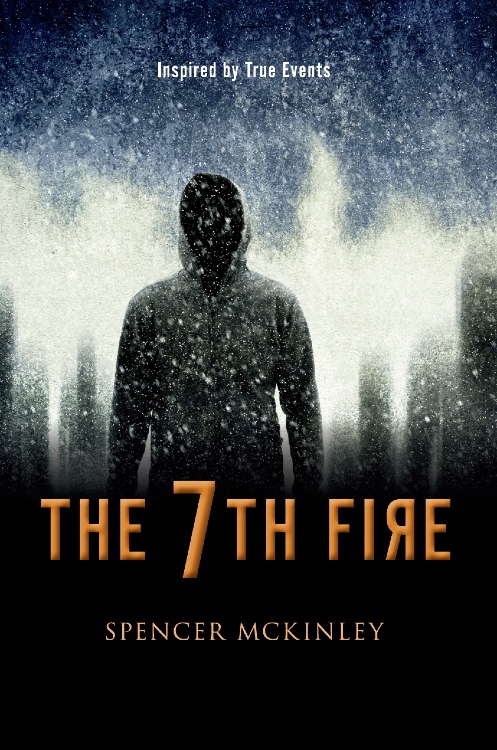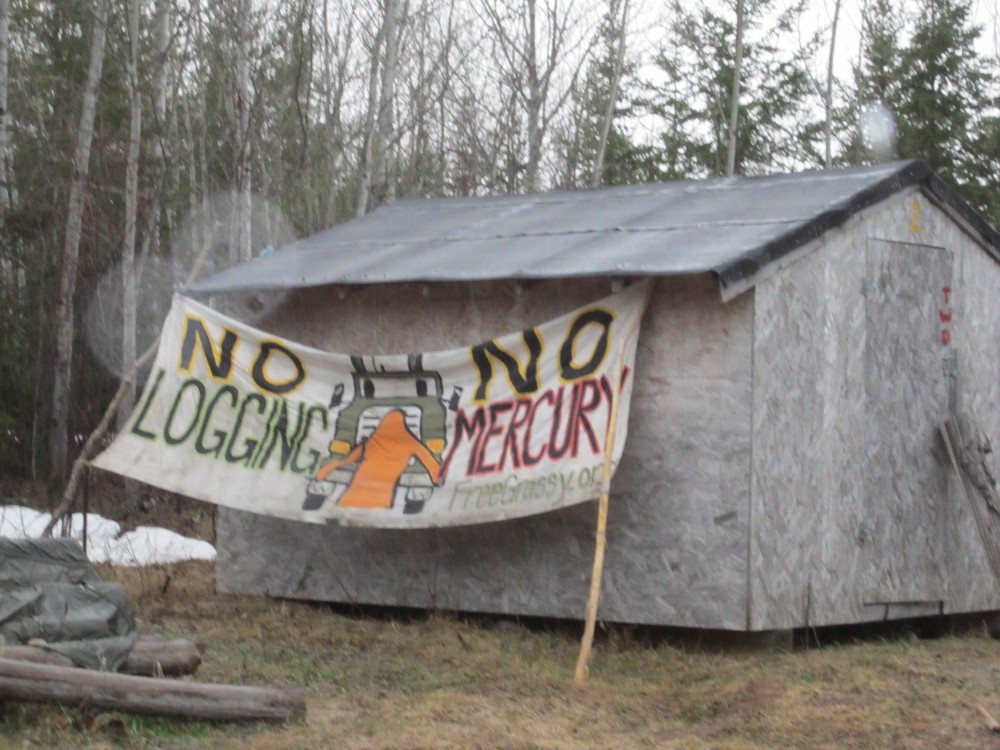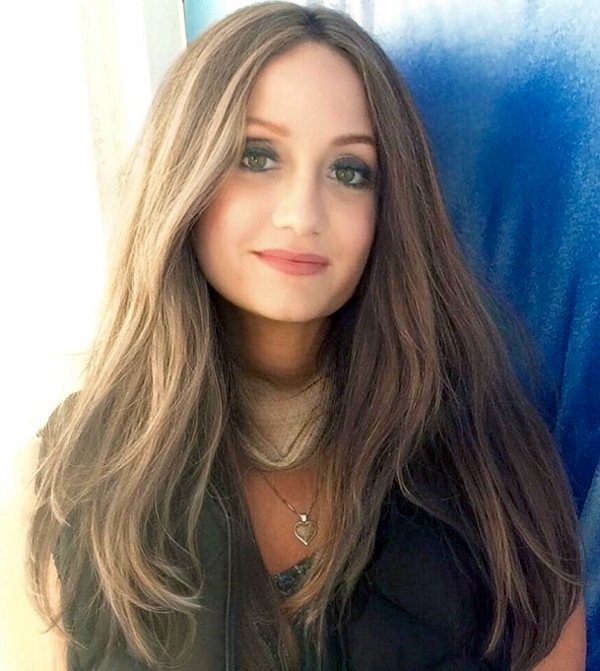Some novels are so close to home that they get under your skin. Such is the case with newly-published eco-thriller The 7th Fire by debut author Spencer McKinley.
An environmentally-conscious page-turner, this gripping story of a teenager, Annie Erickson, who has just seven days to prevent the release of a deadly man-made virus, seems especially resonant post-Covid.
To mark its publication, we speak to author, environmentalist and social campaigner Spencer McKinley about the genesis of her book, the real-world themes it addresses, and why she felt it especially important to aim it at a young adult audience.

Q. Your novel, The 7th Fire, has an interesting title. How did you come to choose it?
A. The 7th Fire is a First Nations’ prophecy of the Anishinaabe people. There were seven prophets and each described an era that would come to pass. The last half of the prophecy applies to ALL humanity. A portion of the text reads...
“The Seventh Prophet was younger than the others who had come, and there was a glowing light from his eyes. He said that there would come a time when the waters had been so poisoned that the animals and the plants that lived there would fall sick and begin to die. If humanity chooses the right road, then the Seventh Fire will light the Eighth, and final Fire, which will light an eternal period of brotherhood and sisterhood. If humanity takes the other road, then the destruction which they have created will come back at them and cause much suffering and death to all the Earth's people.”
According to the prophecy, we are now living through the phase of The 7th Fire. The text clearly describes our current environmental problems, including global warming, pandemics, and the cultural and migratory upheavals caused by them. The prophecy stresses the importance of each individual’s moral obligations to honour the earth.
I learned about the prophecy in 2014, when I joined a Christian Peacemaker Teams (CPT) delegation. We went to Ontario, Canada, to witness, first-hand, the country’s worst environmental disaster, at the Treaty 3 Reserve. I was shocked by what I saw there and immediately thought about the global implications: What would have happened if it had been a bioweapons attack?
After I came home, I wrote the first draft of the novel and screenplay in a month. The project got some interest in Hollywood and later a book deal offer. Less than two years later, the Covid pandemic struck. I had no idea that the novel would be so timely.
Q. Your novel draws upon many real-world environmental concerns. Why did you decide these would be a good basis for a thriller?
A. Because our reality is a thriller one that is calling out for immediate action.
Q. At the heart of the novel is a race against time to stop a man-made virus from breaking free. You wrote this before Covid but now, upon reflection, what do you think are the chances of something like this actually happening?
A. Unfortunately, there is a good chance it can happen. Fifty-nine BSL4 labs exist worldwide. All of these labs are experimenting with deadly viruses, such as Ebola, SARs etc. Only a quarter of these labs have adequate safety protocols in place. Think about it—there are approximately 59 maximum containment labs in operation worldwide that are experimenting with some of the world’s most dangerous pathogens. These labs operate in over 23 countries, and many are located in urban areas, perhaps even in your neighbourhood! The public needs to be vigilant in demanding that safety standards are being met in every lab worldwide and that global cooperation regarding safety standards are in place.

Q. You are a keen environmental campaigner. What first prompted you to follow this path, and what do you think you have learned from it?
A. I come from a family of strong and passionate women. My grandmother fought for women’s rights in Italy, and my mother was a social campaigner and environmentalist in the USA. My mom was one of the first individuals to march on the first Earth Day in 1970. I inherited her concern and passion for the environment. She believed that we all have a moral obligation to protect our environment and promote sustainable survival for future generations.
Let’s face it—environmental degradation is destroying our planet. Climate change is only one of the ecological challenges that we’ll face over the next decade. We have issues with polluted air and contaminated water. Our oceans have become plastic waste dumps. We’re losing our forests; half of all animal species will be extinct in the next 20 years. More Covid-like pandemics are on the way. I believe we can ‘turn the tide’ if we buckle down and get serious, but we have to get SERIOUS about saving our planet!
Q. What was the most challenging part of the novel to write, and why?
A. Pretty much all of it. How do I take an ordinary 14-year-old girl and turn her into a hero? It’s the classic David vs Goliath story. All Annie has is her determination and her fearlessness in searching for the truth. How does she figure it out? How does she win in the end?
Q. Who is your favourite author, and why?
A. John Steinbeck, because he broke all the rules in literature and life. His intense focus on social issues inspired his Nobel Prize- winning novel The Grapes of Wrath. The book was highly controversial. American capitalists protested against the novel’s ‘socialism’ because they feared that Steinbeck’s passion for social justice would strengthen labor unions and restructure the country’s labor force. The book was banned and burnt across the country. However, undeterred, Steinbeck continued to advocate for social change by exposing the unfair working conditions that migrants and the working poor faced during one of the most challenging times in American history: The Great Depression.

Q. The setting of your novel could be seen as a microcosm of all that’s going wrong with the world today. Do you think there is light at the end of the tunnel?
A. Yes, I’m an optimist, but I'm also a realist. Many scientists and world leaders agree that our planet—our very lives—are on the brink of an irreversible change. There is the possibility to halt coming events, but the world must take action NOW. You may have recently watched the Earthshot Awards on TV, which bestowed recognition on organisations helping to protect our planet. Institutions like The Royal Foundation of the Duke and Duchess of Cambridge inspire and incentivise environmental change worldwide. They are precisely the call to action that our society needs.
Q. You originally planned the novel as a film script. Why did you decide to go down the publishing route instead?
A. Well, the story exists in both forms. The book came to be during the Covid crisis. My software job was furloughed. The country was under lockdown for almost four months. I didn’t know what to do with myself, so I re-read the screenplay and decided to convert it into a book. It kept me busy. Then I sent 12 query letters out and got my first book deal offer almost immediately.
Q. Your novel is the first in a series of three books. What can you reveal about the next novel at this stage?
A. Annie sets out on a new mission to warn the public and stop the virus. She will also get revenge on Norlin, the creator of the 7th Fire, and pharmaceutical company Tenacoe.
Q. What do you think is key to writing a gripping thriller?
A. A good book requires several prerequisites: an intriguing story and a fast-paced, cinematic narrative with plenty of plot twists. Tales based on actual events always make great page- turners because truth brings an element of integrity and possibility to the story.

Q. Your novel has been enjoying some glowing reviews. What are you most proud of as its author?
A. The novel has received great feedback from reviewers. I’m most proud of having the opportunity to both entertain and educate my readers. Hopefully, I may have moved and inspired them to take action. The book’s success also inspired me to begin work on its sequel, The 5th World.
Q. As a YA author, why do you think novels should highlight environmental and social issues to younger readers?
A. Our youth is our future. The more aware and engaged teens are in current events, the more proactive they will be in solving our global problems. Many teens, especially young girls, are taking to the streets to elicit action in our society. For example, 16-year-old Jayden Foytlin was one of 21 young people who sued the US Federal Government for violating their rights to a livable planet. Greta Thunberg has become the world-famous face of the climate strike movement. Milou Albrecht, 15, co-founded School Strike for Climate Australia. We must inspire and help our teens organise so that they can achieve a better future.
Q. Who is your favourite character in the novel, and for what reason?
A. Can you guess? Annie, of course. Her loneliness and quest to survive mirrors how I felt when my father passed away at roughly the same age. My mother and I were basically ‘trapped’ in a foreign country (a citizenship mix-up). We had to fend for ourselves. Neither her family nor my father’s family, or even our ‘friends’, came to our aid. No one wanted to get involved. My mom and I became strong independent women. Annie is independent, too.
It’s why she decides to rescue her sister and not wait for the authorities. It’s why she runs away from home at 14, and it’s how she can hold her own with some of the most twisted and evil people in the novel. My mom and I survived my father’s death by sheer determination, even though it was excruciating at times. Annie feels pain, too. She feels the loss and betrayal of her sister and, because of that, she’s not standing down. Annie’s not giving up even when she feels afraid or threatened. She also knows when it’s time to walk away and say goodbye. That’s why Annie is such an excellent role model for young readers. Annie knows she must stop the virus, and that’s what she’s going to do. She’s truly inspirational.
Q. What do you hope readers will remember most about your novel?
A. That we all have a story to tell and a unique journey in life. We should always step forward in faith, compassion, and strength. We should be eternally engaged in improving, saving, and helping our planet and the people in it. And we must do so with courage and determination.
The 7th Fire by Spencer McKinley (Austen Elliot) is out now in eBook format, priced £7.18, available from Kobo UK. It will be published in paperback on 30th November, 2021, available from Amazon UK, priced £13.99. For more information, visit SpencerMckinley.com, or follow her on Facebook.
MORE FROM BOOKS: The seven most inspiring people I've interviewed, by author L.A. Larkin

